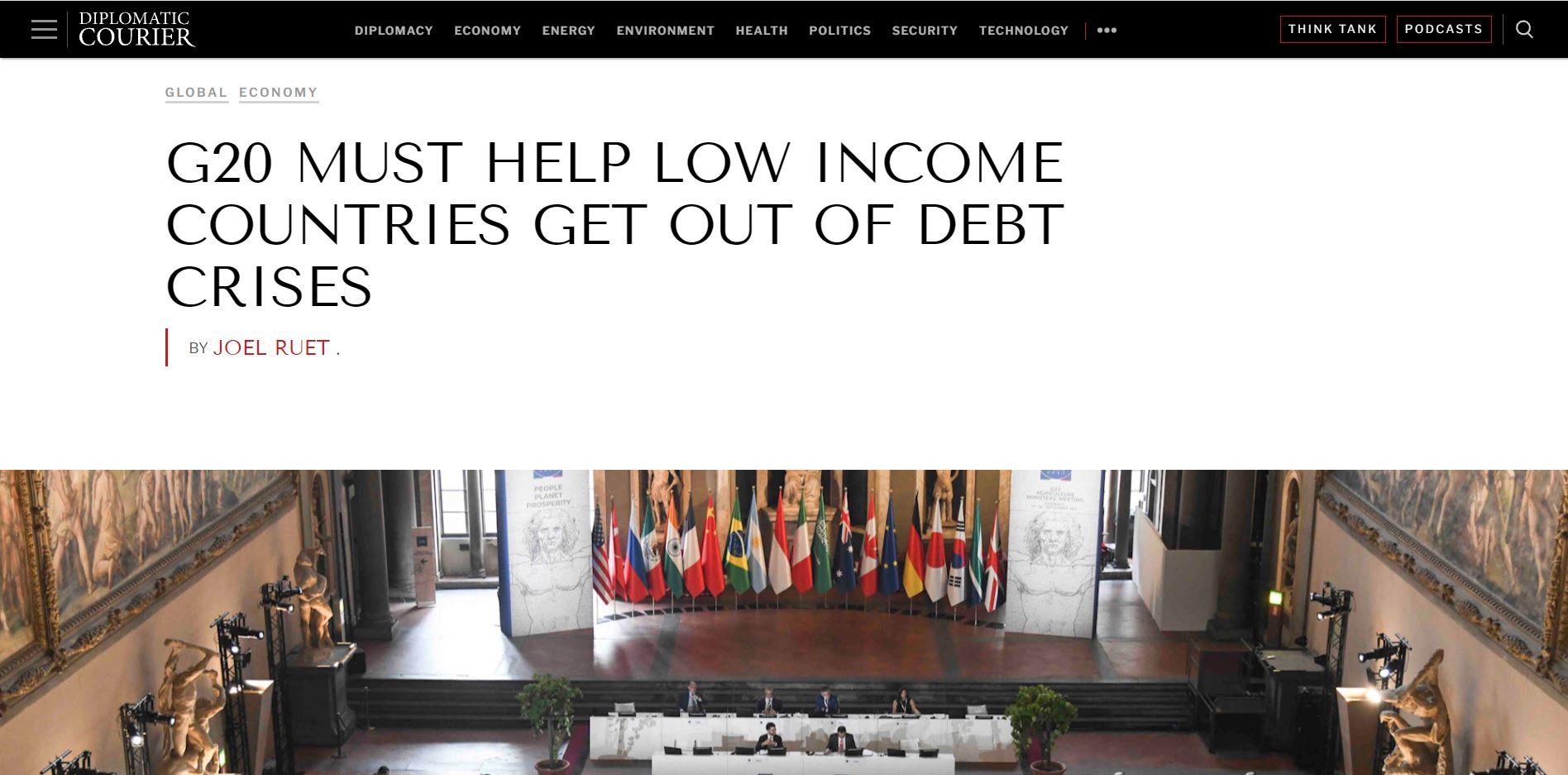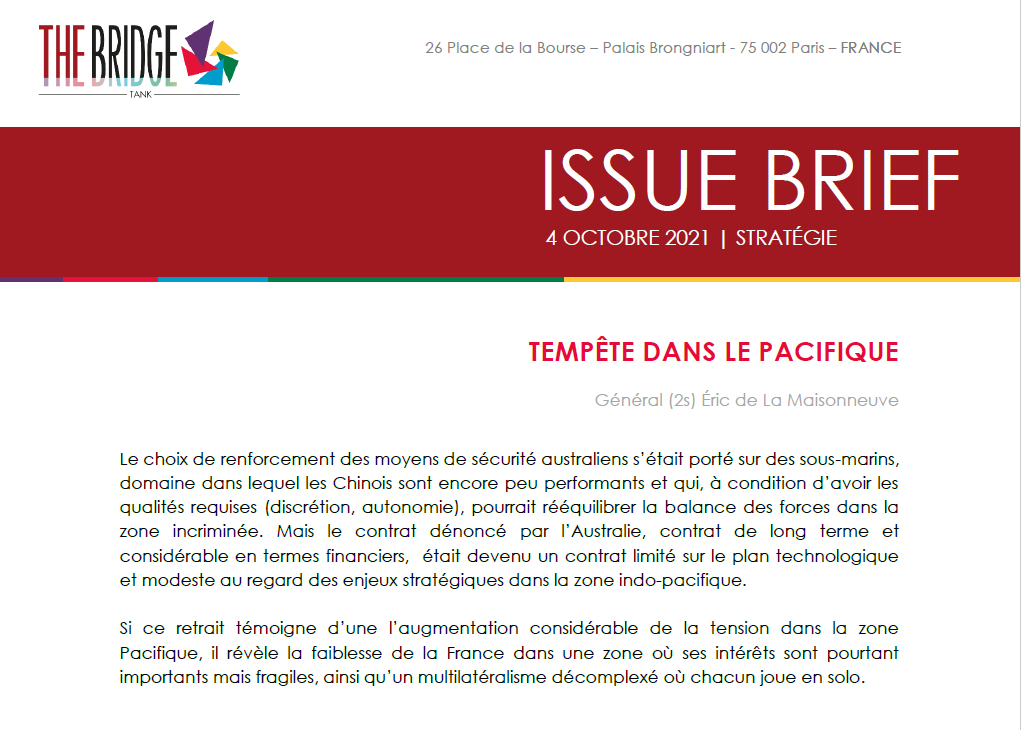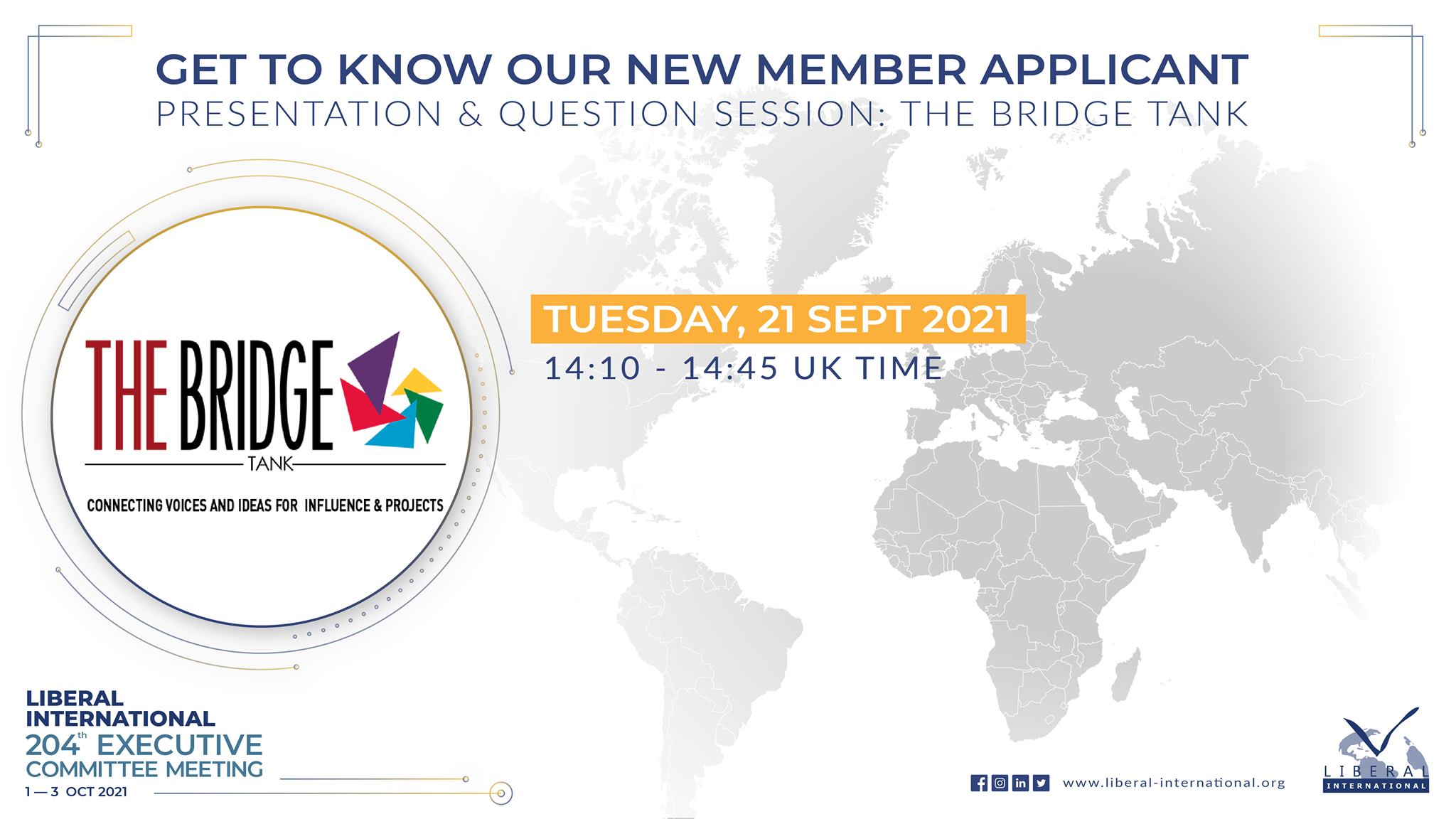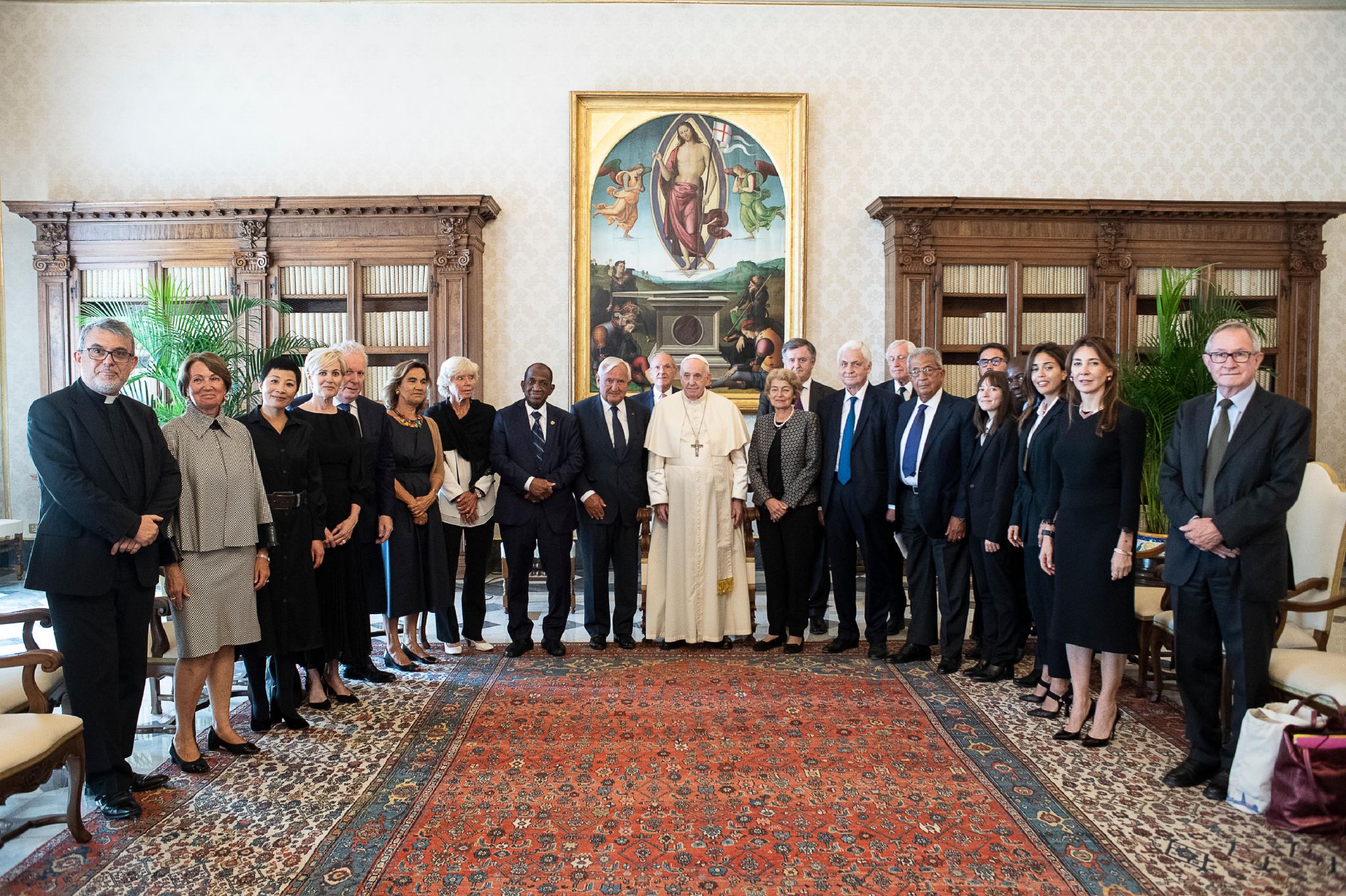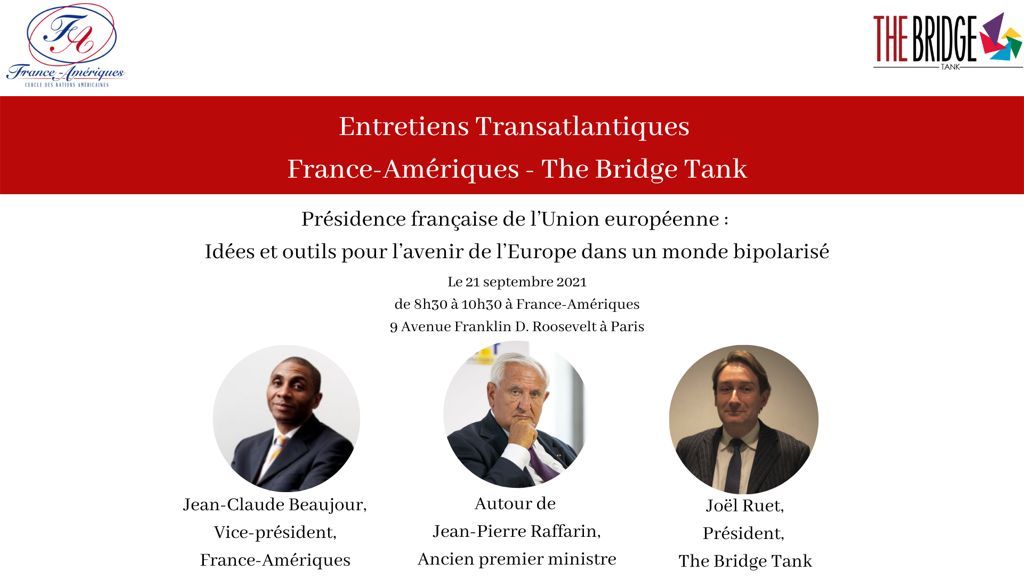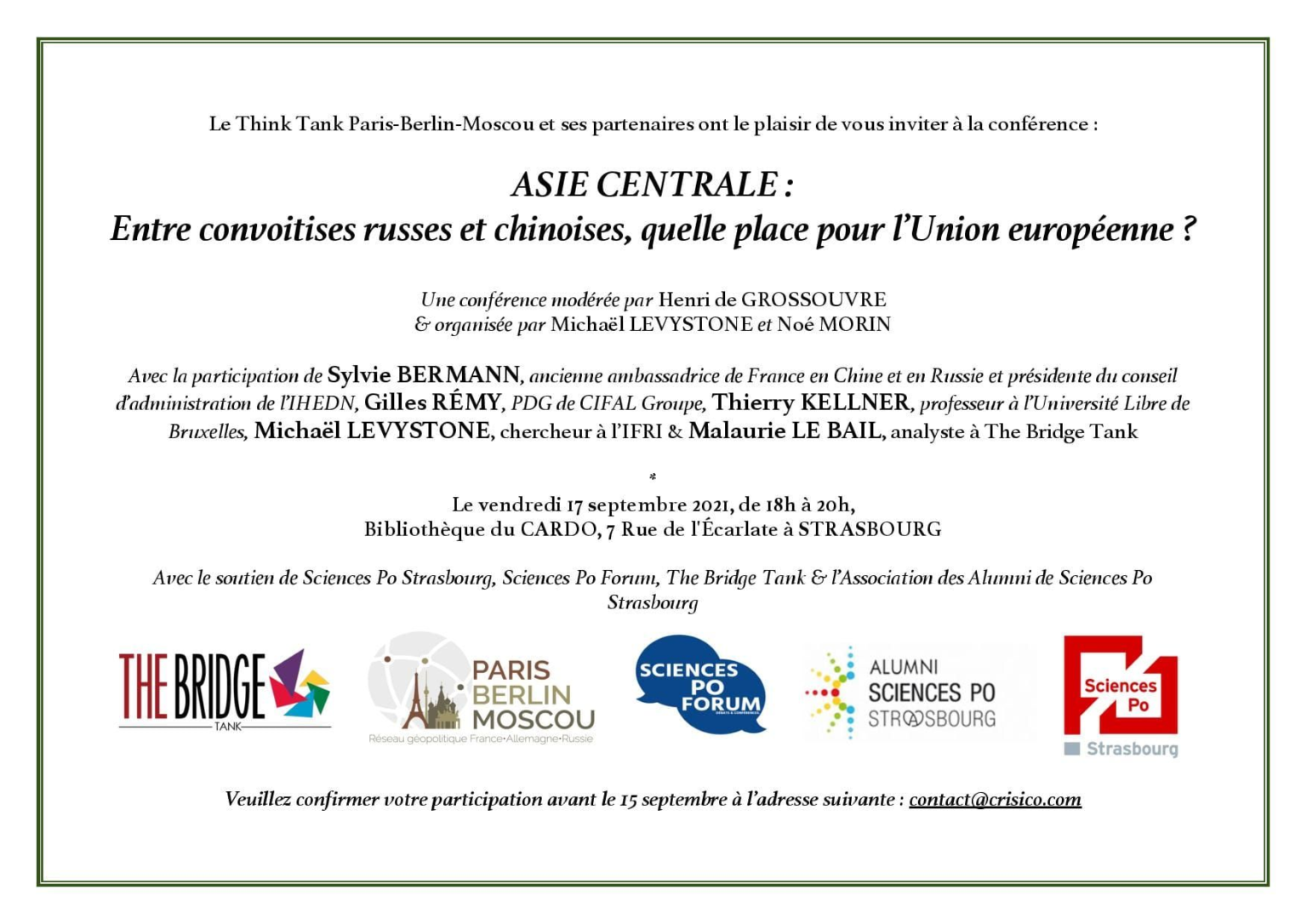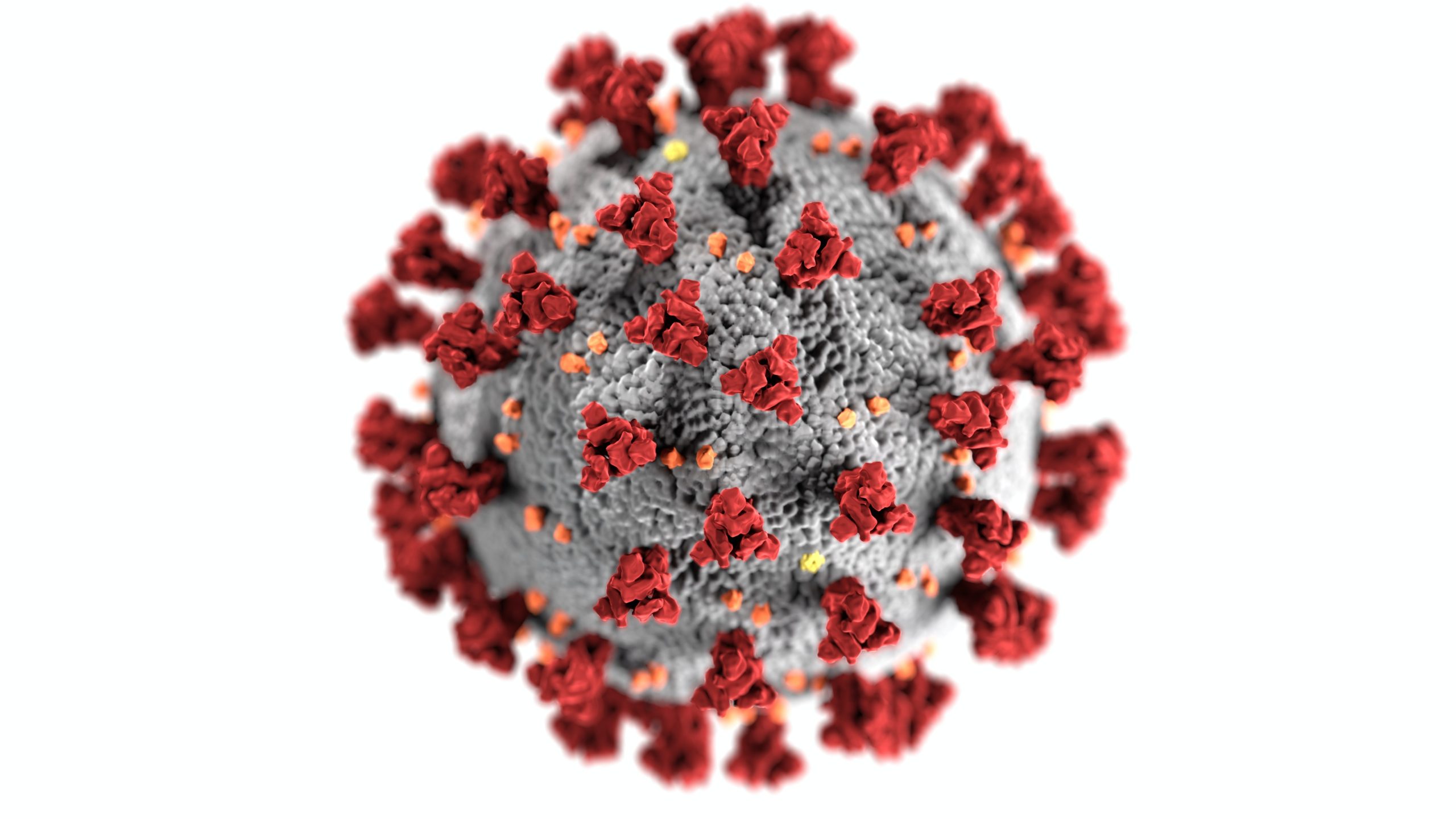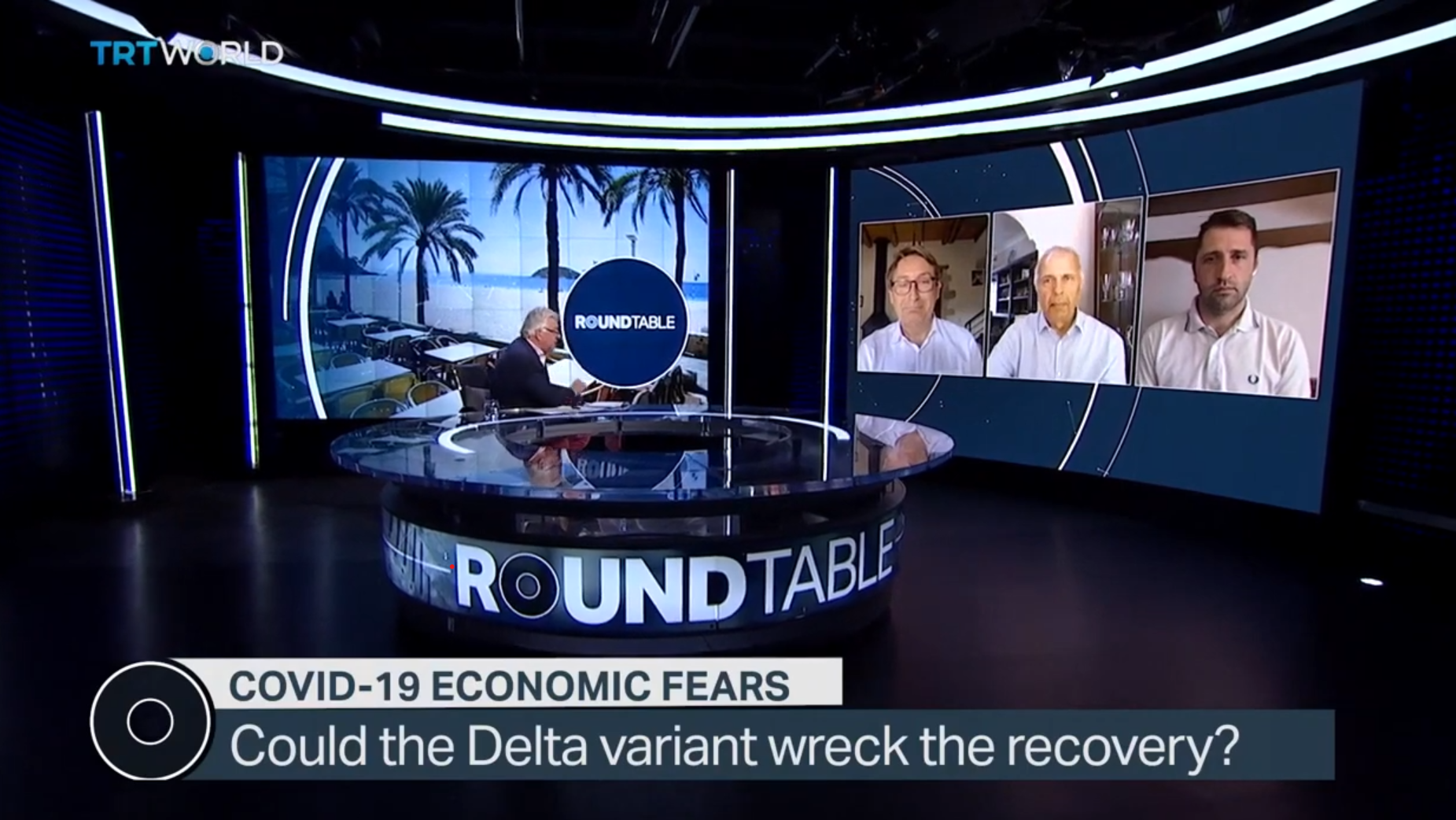Issue Brief: AUKUS – A storm in the Pacific
On 15 September 2021, Australia terminated a contract with France to supply conventional submarines, in favor of a nuclear military-technology collaboration with the United States and the United Kingdom. This breach of contract highlighted the nascent AUKUS (Australia, United Kingdom and United States) military alliance, which was created in response to China’s growing power in the Indo-Pacific. This tripartite alliance has only served to add insult to injury in the current tense international context, as well as to exacerbate diplomatic relations between France and the United States.
In light of the visit to Paris on October 5, 2021, of the Secretary of State of the United States, Anthony Blinken, to try and appease the situation, The Bridge Tank published an analytical note, written by retired French General Eric de La Maisonneuve.
This issue brief is based on the idea that the contract denounced by Australia, a long-term contract and considerable in financial terms, had become a limited contract in technological terms and modest in relation to the strategic stakes in the Indo-Pacific zone. This Australian reversal reveals several key points:
- The worsening situation in the region, particularly in the South China Sea, the growing antagonism between China and the United States on trade issues, the impressive rise of the Chinese navy and its associated armaments, the multiple Sino-Australian tensions, all lead both the United States and Australia to review their arrangements.
- If, as is to be expected, events in the area precipitate, urgency will prevail and the USA will be forced to install their bases and nuclear submarines directly in Australia, even if it means renting or loaning some of them to the latter. Here again, it is likely that this future contract under the AUKUS umbrella will have difficulty seeing the light of day.
- France for its part should draw the consequences of this diplomatic-strategic fiasco in three directions:
- Revise its “foreign policy/defense policy” complex,
- Re-evaluate the European security pillar and its concretization through a Franco-German alliance under the French Presidency of the EU,
- Rethink in this context its systems of analysis of China to better anticipate its strategy and its actions.
Read the issue brief here (in French): 2021-10-04-IB La Maisonneuve
Liberal International 204th Executive Committee Meeting Elects The Bridge Tank as an Observing Member to LI
The 204th executive committee meeting of Liberal International took place online from 1 – 3 October 2021, with 132 registered delegates from 45 countries and 6 regions of the world. The Bridge Tank was one of think tanks to be officially welcomed to the LI family, demonstrating the growing appeal of liberalism outside of its traditional strongholds.
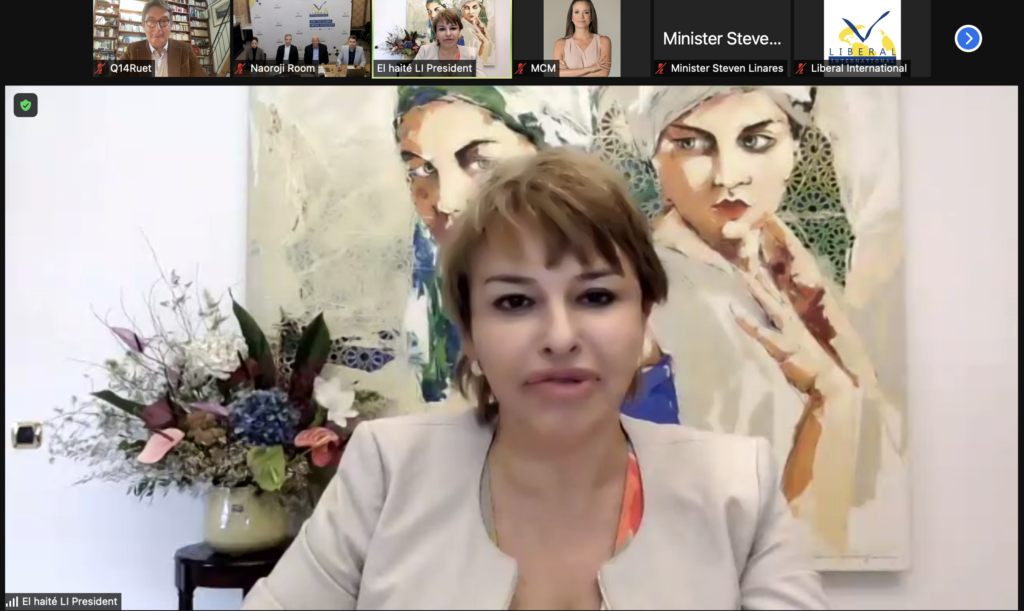

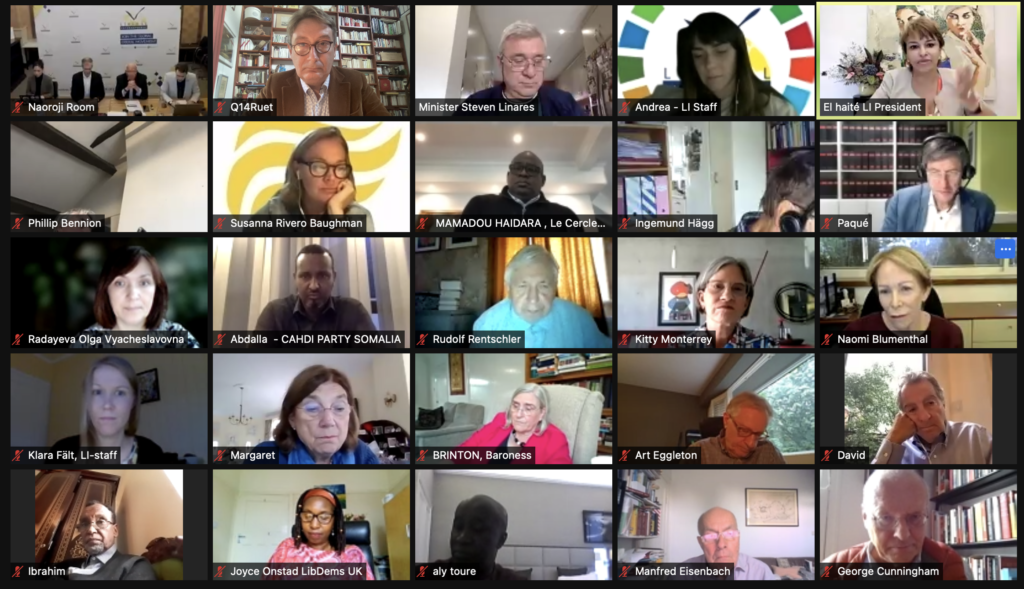
During this session, two policy papers were submitted by the LI climate justice committee and fair-trade working groups and eight urgency resolutions were adopted on urgent current global matters including the Covid-19 pandemic and climate change.
Read more about the 204th executive committee meeting on Liberal International’s website.
Our board member, Irina Bokova, is part of the “Leaders pour la Paix” delegation received by Pope Francis
The Bridge Tank’s board member and former Director-General of UNESCO, Irina Bokova, was received at the Vatican on Saturday, 4th of September by Pope Francis as part of the official “Leaders pour la paix” (Leaders for Peace) delegation.
In his speech, Pope Francis acknowledged the Covid-19 pandemic and the particular difficulties the world’s population was faced with today during this “critical moment in History”. He then paid tribute to the Leaders pour la paix and their contributions towards helping the leaders and citizens of today combat these difficult times.
Other the members of the delegation present were former Prime Minister of France, Jean-Pierre Raffarin.
“Transatlantic Talks: Reflections for Europe with French Prime Minister Jean-Pierre Raffarin
On 21 September 2021, The Bridge Tank and the France-Amériques Circle inaugurated the “Transatlantic Talks”. The objective of these meetings is to bring together decision-makers around a personality in a closed format, and aim to feed into proposals ahead of the French Presidency of the European Union.
This first meeting gathered around Jean-Pierre Raffarin some fifteen political personalities, former ministers, parliamentarians, industrialists, senior civil servants and representatives of civil society.
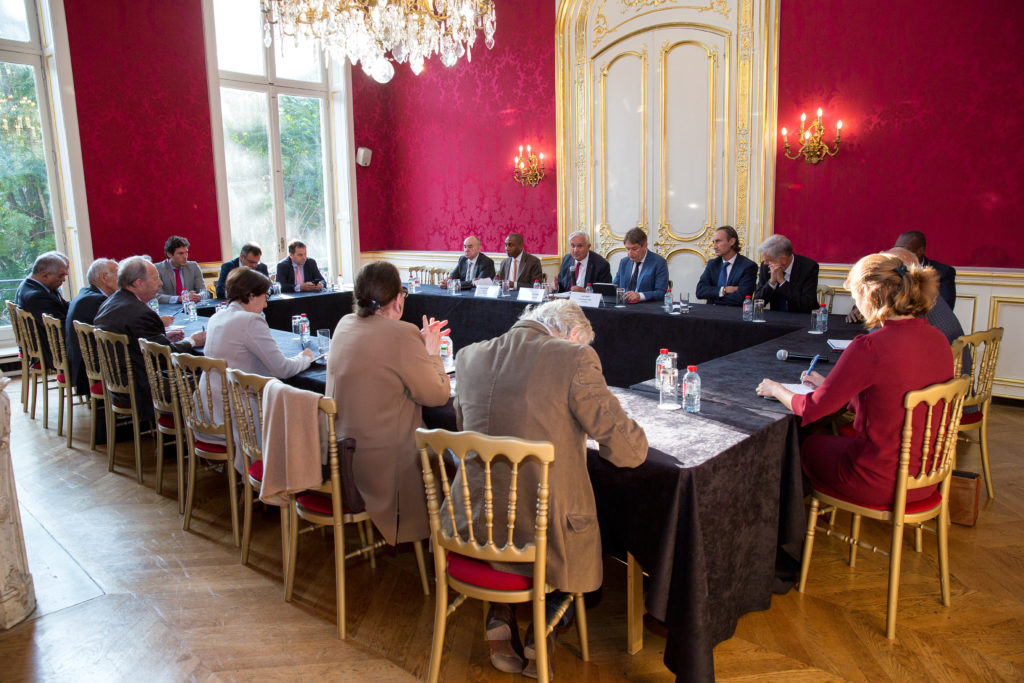
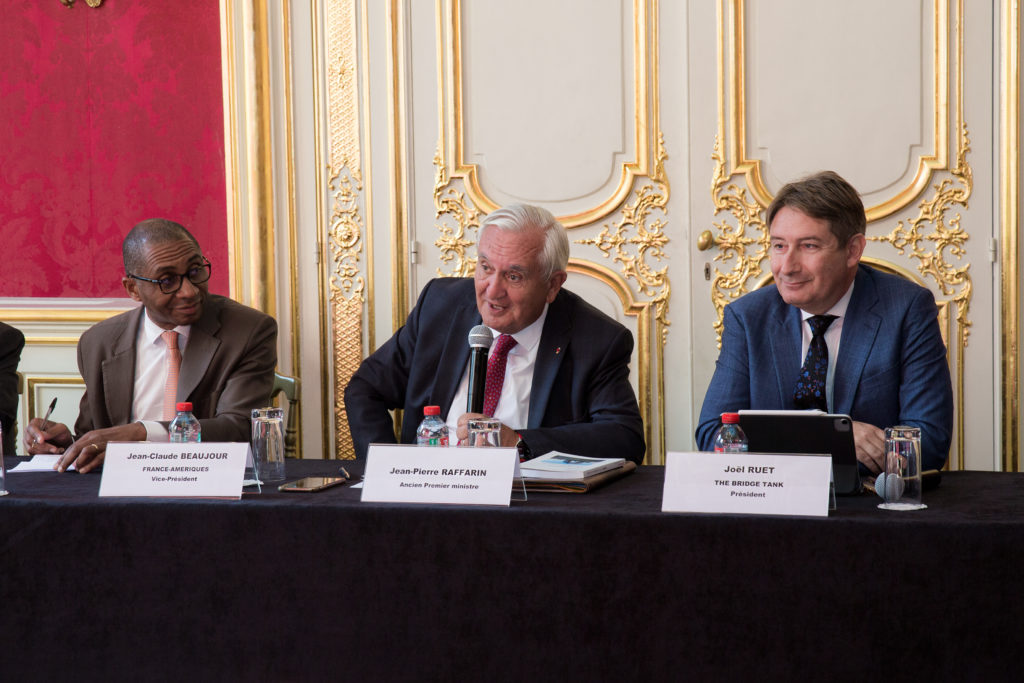
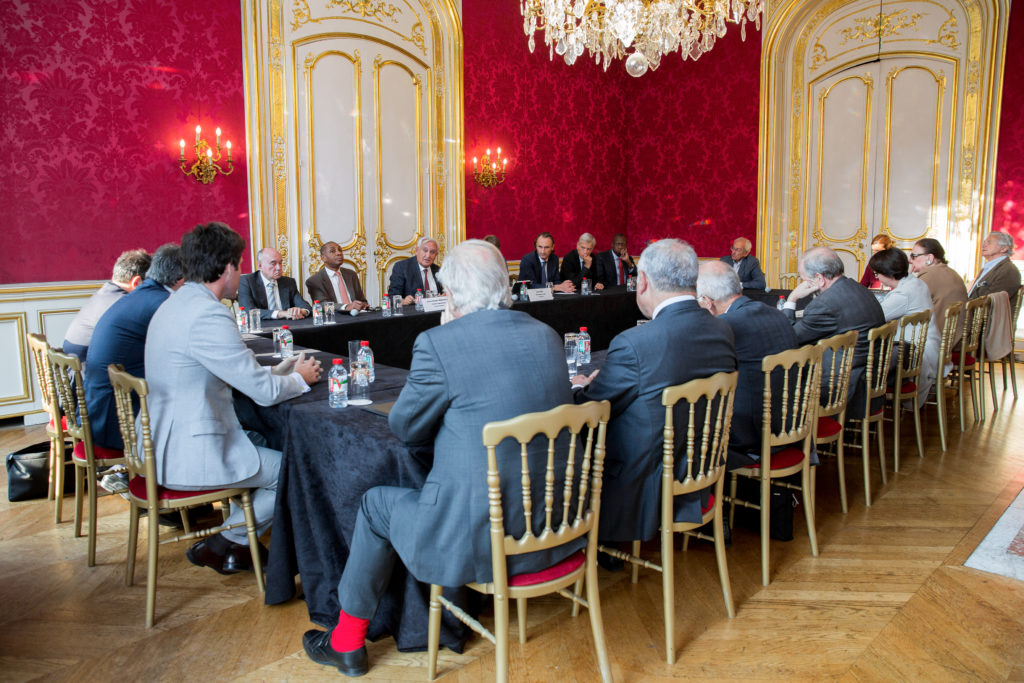
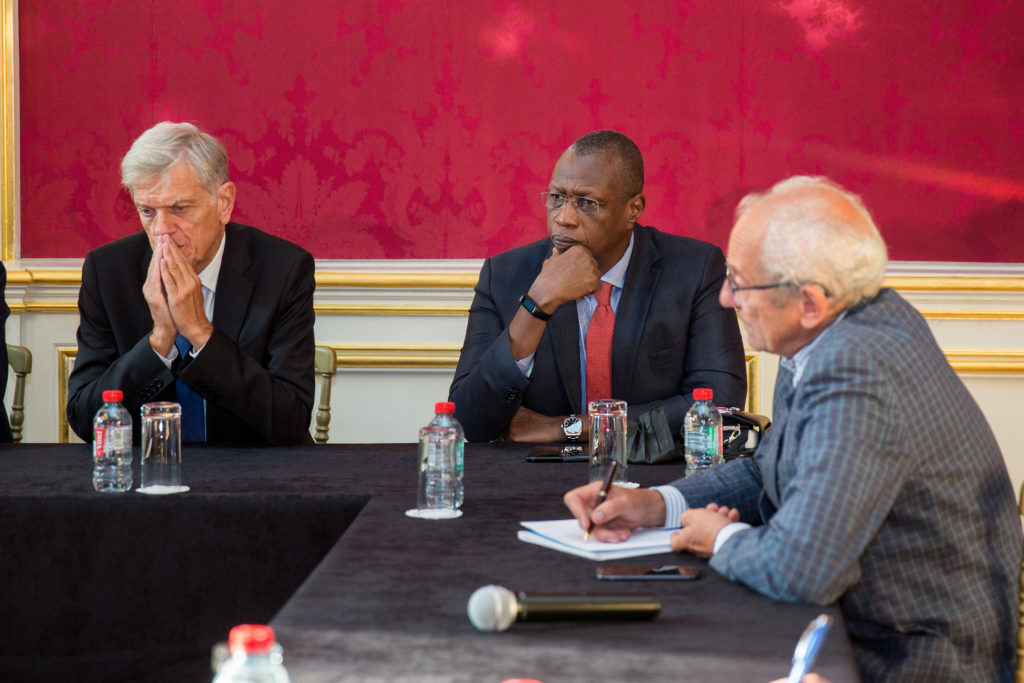
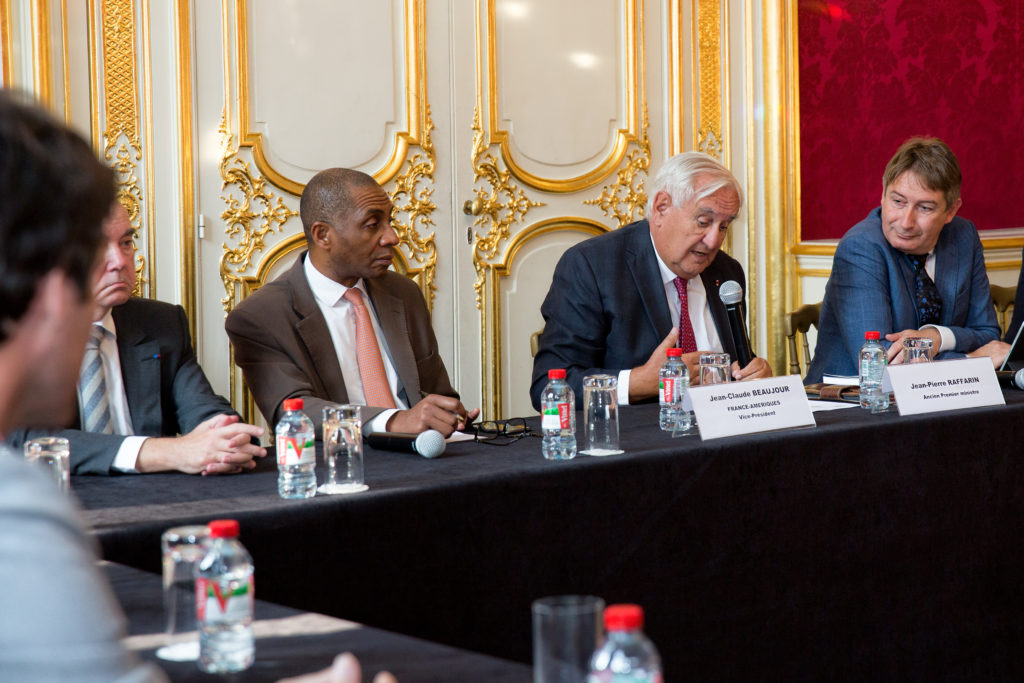
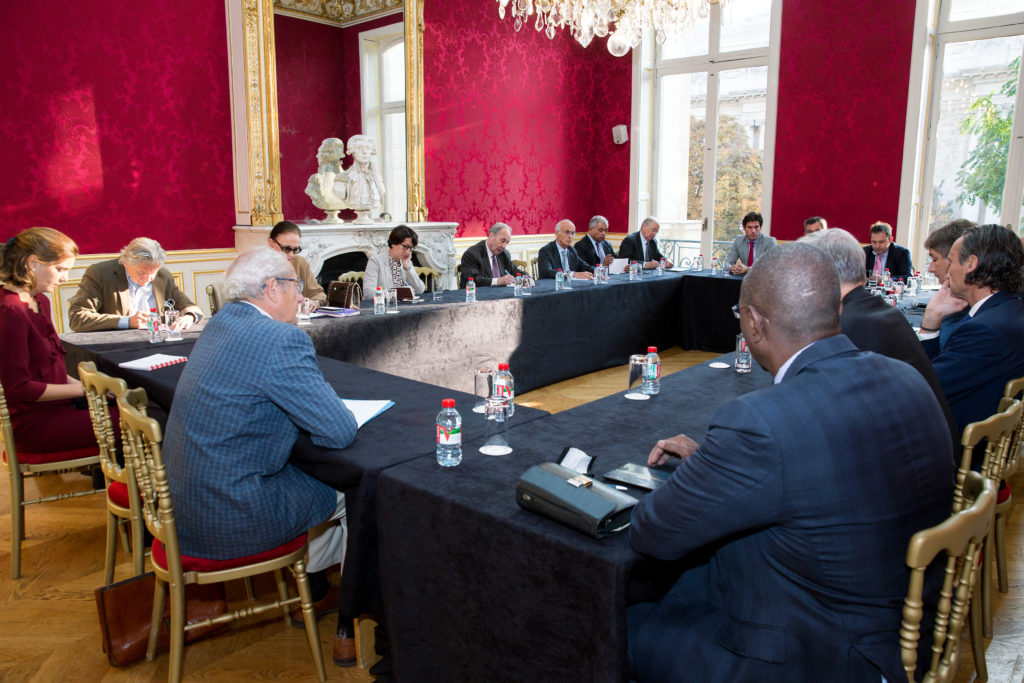
During this meeting following the “Chatham House Rule”, after several ideas launched by Mr Raffarin, the participants exchanged analyses and proposals on the following themes:
- EU-China-US relations and their growing role in various domestic policies
- Internal relations within the European Union
- The issue of European strategic autonomy, including data autonomy
- Multilateral cooperation and cooperation with Germany in Africa and democratisation in Africa
- The question of a European defence and its financing
- Energy and environmental issues in the face of ecological destruction
- The modernisation of democracies
- The risks of European deconstruction and solutions
The Bridge Tank and the France-Amériques Circle plan to organise a next session of the “Transatlantic Talks” around a new political figure.
The Bridge Tank participates the 2021 edition of the Summit of Minds

The 2021 edition of the Summit of Minds forum took place at Chamonix, from the 17 – 19th of September. This year, the Summit was focused on two main ideas: key macro issues and wellness and wellbeing, with a particular spotlight on natural capital (nature as a productive asset). In a context where the climate crisis is becoming a more and more central concern initiating many high-level discussions, the Summit of Minds gathered prominent political, economic, scientific, cultural, and business figures from all over the world, including the Armenian president Armen Sarkissian, to debate these key topics.

The Bridge Tank’s president, Joël Ruet, intervened on the panel: ‘Energy Transition (2) – How to Invest in it? dedicated to the current trend of transition towards net zero carbon emissions, its subsequent opportunities, and risks for businesses. Led by Nik Gowing, Managing Partner of Thinking the Unthinkable, UK, the discussion was structured around three essential questions:
- Where is the ‘smart’ money going?
- Is the current ESG excitement sustainable?
- What assets run the risk of becoming stranded?
During his intervention, Joël Ruet elaborated on the evolution fo classes of assets for energy transition finance, highlighting the diverse risk factors involved, from profitability dispersion to a lack of cohesion in some national transitions, going through unstabilised hydrogen ecosystems across the world. Joël Ruet also highlighted the importance of differentiating megatrends from mega-ambition, stating that there is no one-size-fits-all energy which could alone resolve current climate issues.
Other panelists included: Martin Fraenkel, Vice Chairman of S&P Global, UK, Eoin Murray, Head of Investments of Federated Hermes International, UK, Franklin Servan-Shreiber, Co-Founder & Chairman of Transmutex, Switzerland, with the special appearance of Mafalda Duarte, CEO of Climate Investment Funds, USA.

Our board member, Pranjal Sharma, was also present during the Summit. He intervened on two panels: ‘AI & Democracy – Do We Have Anything to Fear?’ and ‘Tech – How Far Will Innovation Go?’
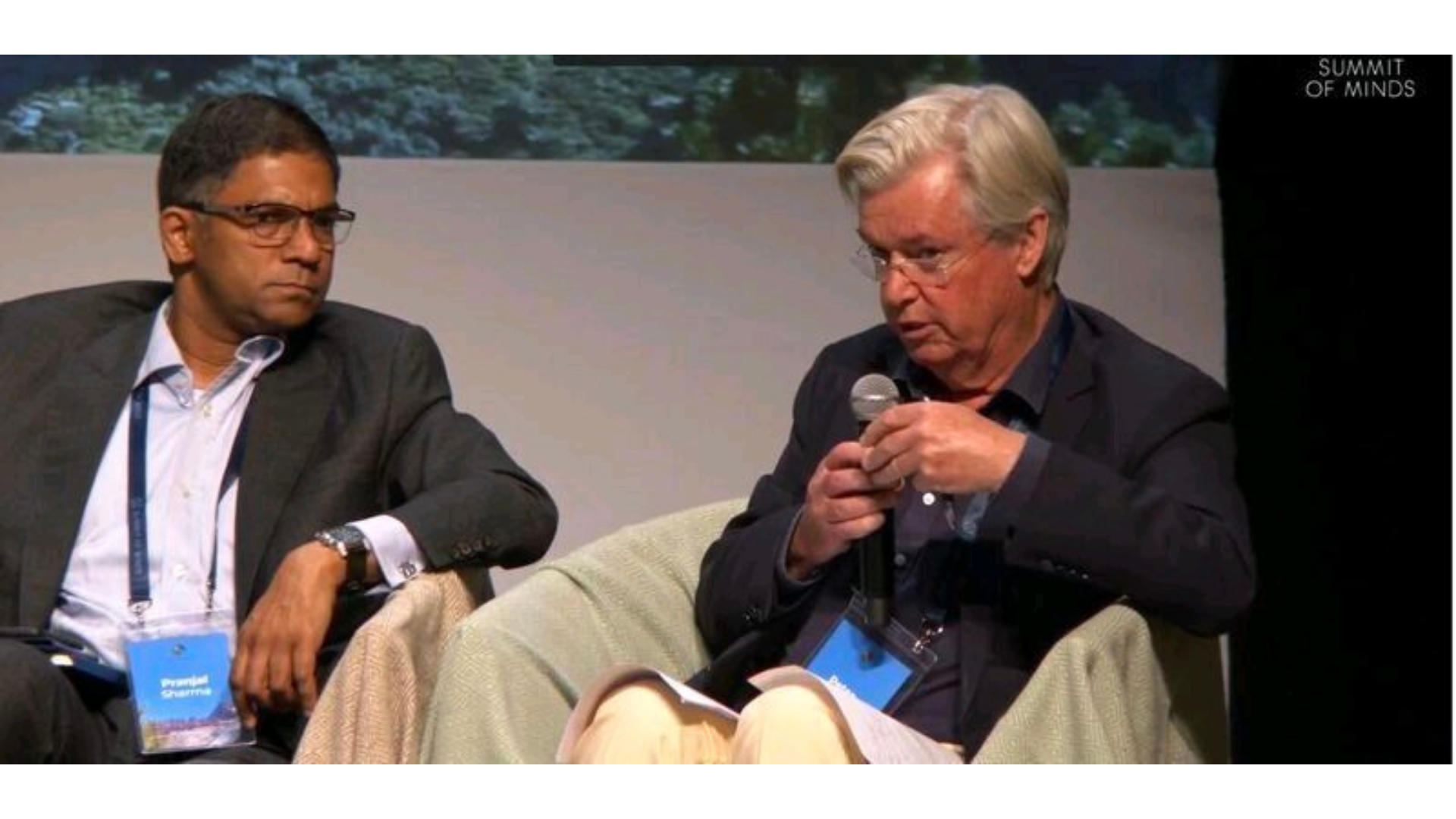
During the forum, Joël Ruet also notably exchanged with Lord Adair Turner, chairman of the Energy Transitions Commission, UK on how the COP26 could transform systems of negotiation for future COPS to come, instigating climate change action within the public finance sectors at regional, national and international levels.
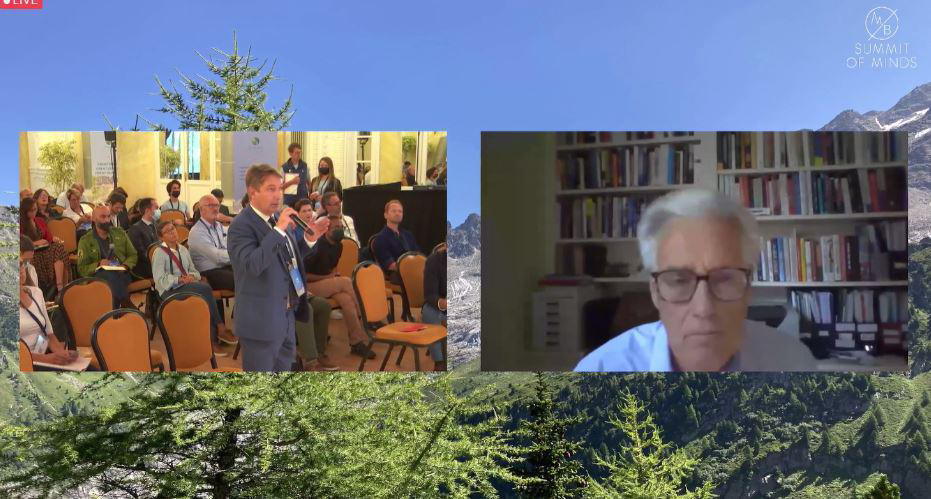
Watch the sessions on our youtube channel:
Malaurie Le Bail, analyst at The Bridge Tank, speaks at the conference: “Between Russian and Chinese covetousness, what place for the European Union?”
The conference on Central Asia at Sciences Po Strasbourg, on 17 September 2021, “Between Russian and Chinese covetousness, what place for the European Union?”, was for The Bridge Tank the opportunity to recall that the land silk roads are first of all a vast operation to open up the provinces of Western China.
Malaurie Le Bail, analyst at The Bridge Tank, participated in this event moderated by Henri de Grossouvre and organised by Michaël Levystone and Noé Morin, in the presence of Sylvie BERMANN, former French ambassador and Gilles RÉMY, CEO of CIFAL Groupe, Thierry Kellner, Michaël Levystone, Henri de Grossouvre and Noé Morin.
Watch her intervention on our youtube (in French).
Read our article on the conference here.
When bad controversies drive out the good ones: rehabilitating scientific controversy
At a time when Covid variants are multiplying, what is known genetically about this virus, from the processes of its emergence, to the role of virology in the analysis of its current evolution, to the genetic origins of its transformation into a pandemic, as well as the hypothesis of the possible role of humans and virological laboratories in its rise? What are the hypotheses supported by facts and debated by scientists, the controversies based on scientific protocols?
From the emergence of a pathogenic virus to the pandemic and variants: virology’s point of view
To shed light on these questions, this dossier presents our exchanges with Sterghios Moschos, researcher, virologist, with Gabriel Gras, former virology researcher and biosafety expert, and with Professor Jacques Cohen, physician and scientist, professor of immunology.
Sterghios Moschos introduces the panorama of the scientifically debated theses, Gabriel Gras tackles the questions linked to the origins of the virus and the functioning of the biological security laboratories and finally Jacques Cohen tackles the questions linked, starting from the virus, to the emergence of the disease and then to its transformation into a pandemic, in order to draw some lessons on a better coordination between disciplines, between science and the public authorities.
Finally, in a current situation where the International Conference for the Conservation of Nature is being held, we open the question of the relationship between humanity and nature.



When bad controversies drive out the good: rehabilitating scientific controversy
When a new epidemic erupts into the world, virology and epidemiology are initially blind to the DNA of the virus, its capacity to spread and contaminate, as well as its origins. Eventually, these scientific fields become more astute, able to see more clearly the DNA of the virus, its family of possible reservoirs and hosts, becoming potentially clairvoyant later on its capability to spread, transform as well as its origins, resulting eventually in the creation of a vaccine.
However, science takes time and a certain protocol, during which hypothesises need to be raised and de-bunked, or confirmed, fully or partially. This is a classic process of science in the making, well established since modern science developed, well understood by the epistemology of sciences including Gaston Bachelard and others; in this context, “scientific controversy” helps unearthing the truth from gathering, accumulation and minute interpretation of facts.
In the post-media age, however, politicised as it is, scientific controversies often escape the preserve of science, leak or get leaked by the media, and can even be intentionally diffused as propaganda by all sides or state/philanthropy/media machines. The current pandemic most likely has not escaped this trap.
To this, time may still clarify the debate, but an interesting tool is provided through “Mapping” controversies (MC). As defined by Wikipedia: MC is an academic course taught in science studies, stemming from the writings of the French sociologist and philosopher Bruno Latour. MC focuses exclusively on the controversies surrounding scientific knowledge rather than the established scientific facts or outcomes. This “mapping” helps sociologists, anthropologists and other social scientists get insights not into scientific knowledge per se, but rather into the process of gaining knowledge. MC sheds light on those intermediate stages corresponding to the actual research process whilst pinpointing the connections between scientific work and other types of activities.”
“Mapping of Controversies” goes against political controversy, and controversy in the right sense ought to be re-appropriated by those it belongs to by sheer design of science: the scientists.
To read more on this topic, Joël Ruet, President of The Bridge Tank, has published an article in french on the website La Tribune : Coronavirus _ un analyseur de la complexité des relations hommes-animaux _
The Bridge Tank also wrote a note on scientific controversies and a literature review: The Bridge Tank COVID19 – A note on scientific controversies and a Literature review
Read the transcript of each interview here: Verbatim – Interview Sterghios Moschos_FINAL; Verbatim – Interview Jacques Cohen_FINAL; verbatim – Interview Gabriel Gras_FINAL
TRT World – The impact of the COVID-19 pandemic on the economies of France and the EU
In July 2021, The Bridge Tank’s President Joel Ruet, economist at the French National Centre for Scientific Research (CNRS), joined David Foster on Turkish television channel TRT World to discuss the impact of the COVID-19 pandemic on the economies of France and the EU.
Comparing the pandemic to previous crises, e.g. the oil shock of 1973 and the 2008 financial crisis, Mr Ruet contended that the French economy did manage to ride out the pandemic quite well, despite suffering -13% on its quarterly GDP growth rate (compared to -1% in 2008 and -2% in 1973). One of the differences with previous crises is that the pandemic did involve nowhere near the wealth destruction that the global economy suffered during the 2008 financial crisis, Joel Ruet argued.
He also gave credit to France for managing the pandemic well on a macro-economic level. The responses of both the French government and the EU were quite different from those of 2008, as they were much better coordinated, quicker and more extensive.
The measures France unrolled in 2020 to support economic activity during the pandemic accounted for €500 billions. These were divided between real expenditure (i.e. partial unemployment schemes; solidarity fund) and cash flow measures (e.g. deferral of social security contributions and tax payments at the height of the crisis). A second category of measures implemented by France is found in its €100 billion economic recovery plan for 2021-2022.
All these measures were effective in protecting French citizens, as household purchasing power remained the same between 2019 and 2020. In addition to that, the French economy created 41,000 jobs between April and June 2021 – 15% more than the quarterly average observed since 2009. With the majority of French citizens now vaccinated, the most likely scenario remains that of a strong recovery (i.e. 6% growth forecast according to French President Macron), with the European Commission itself expecting a 4.8% growth in the EU and the eurozone this year (forecast of 7 July).
As a conclusion, Joel Ruet also noted that the pandemic created an opportunity for an accelerated green transformation in the EU.
Rewatch the full show:
Sustainable Energy transition trajectories in large countries
By Baudouin Becker, Antoine Goutaland, Xieshu Wang, Joël Ruet, Laure Elise Wargnier and Malaurie Le Bail.
The ecological emergency has caused a sharp pressure on policy makers to concentrate their efforts on elaborating public policies to organize the passage from the existing fossil fuels based system, that is unsustainable, to another system, whose contours are unknown in details for the time being, but whose ambition is to be durable. Unlike previous energy transitions that were achieved through industrial investments, the decarbonization of national economies is directly led and orchestrated by public authorities through incentives, constraints and policies. The presented documents are methodologies that aim at assessing the ability of governments to coordinate key actors and systems in order to achieve their climate goals and to identify the structural characteristics of the countries’ ecosystems.
These studies identify trajectories, that we define as the coordination of variables that allow a system to remain balanced while being in motion. A systemic understanding of these trajectories is proposed, including both major responses of public policies to climate issues and the possible integration of the new technologies within the existing system, including an analysis of industrial systems and their capacity (or disability) to meet these challenges.
In order to understand energy transitions across sectors, we have developed a detailed and replicable methodology that fully integrates the role and potential impact of actors (political and industrial). This has enabled us to understand energy transitions in an original way, freeing us from siloed macroeconomic studies and overly specific energy studies that do not allow us to understand the energy stakes as a whole.
In the following documents, you will find this methodology applied to over 20 economies.
The full report : Energy trajectories in main markets
Specific focus : Energy trajectories in main markets

